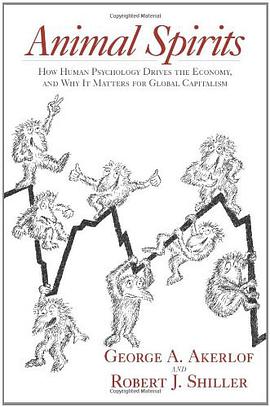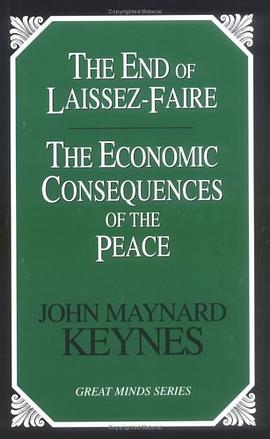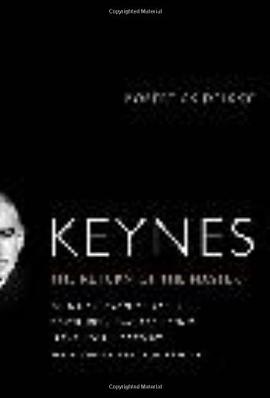Animal Spirits: How Human Psychology Drives the Economy, and Why It Matters for Global Capitalism 豆瓣 Goodreads
作者:
George A. Akerlof
/
Robert J. Shiller
Princeton University Press
2009
- 1
其它标题:
Animal Spirits
Review
White House Budget Director Peter Orszag is a numbers guy, a propeller head as President Obama would say. But as David Von Drehle and I write in this week's print version of Time, Orszag has been spending his time recently reading not about spreadsheets, but about psychology. In particular, he has been reading a new book by the economists George Akerlof and Robert Shiller called Animal Spirits: How Human Psychology Drives The Economy, and Why It Matters For Global Capitalism. . . . We are, it turns out, slaves to the Animal Spirits. They have brought us to our knees. And now they are the only things that can save us.
(Michael Scherer, Time.com's "Swampland" )
In their new book, two of the most creative and respected economic thinkers currently at work, George Akerlof and Robert Shiller, argue that the key is to recover Keynes's insight about 'animal spirits'--the attitudes and ideas that guide economic action. The orthodoxy needs to be rebuilt, and bringing these psychological factors into the core of economics is the way to do it. . . . The connections between their thinking on the limits to conventional economics and the issues thrown up by the breakdown are plain, even if they were unable to make every link explicit. Even more than Akerlof and Shiller could have hoped, therefore, it is a fine book at exactly the right time. . . . Animal Spirits carries its ambition lightly--but is ambitious nonetheless. Economists will see it as a kind of manifesto.
(Clive Crook Financial Times )
Animal Spirits is a welcome addition to our Hannitized national economic debate, in which anyone who advocates government spending risks being labeled a socialist. . . . Animal Spirits is most compelling when the authors summon all the key behavioral patterns to explain vast, complex phenomena such as the Great Depression. . . . Animal Spirits . . . [is] aimed squarely at the general reader, and rightly so: Macroeconomics is now everybody's business--the banks are playing with our money.
(Andrew Rosenblum New York Observer )
[A] lively new financial crisis book.
(James Pressley Bloomberg News )
The two superstars have produced a truly innovative and bold work that attempts to show how psychological factors explain the origins of the current mess and offer clues for possible solutions. At a time when plummeting confidence is dragging down the market and the economy, the authors' focus on the psychological aspect of economics is incredibly important.
(Michael Mandel BusinessWeek )
What Sigmund Freud did for the study of the mind, George Akerlof and Robert Shiller are doing for economics. Freud, healer or fake--take your pick--built a career and a field of medicine on the idea that people are driven by irrational forces. Akerlof, professor of economics at the University of California, Berkeley and winner of the 2001 Nobel Prize in economics, and Shiller, the Yale economist who is the eminence grise of the housing meltdown, argue that massive government market intervention programs are the only way to turn fear into enthusiasm for spending and investing--the 'animal spirits' that are an essential part of recovery. . . . Akerlof and Shiller pick up on the idea of the emotional impetus to investment. With elegant reasoning and lovely prose, they demonstrate that we'll all be wallowing in misery unless governments around world, especially the in the G7 nations, help to return markets to optimism. . . . Animal Spirits is a fine discussion of the last few decades of development of economic theory, especially monetary economics.
(Andrew Allentuck The Globe & Mail )
Another contribution to the human-nature-ensures-economics-is-irrational school of thought. But, unlike many of the rants against people trying to make an honest profit, this is a measured examination of how the present crisis is explained in economic terms. And so it should be. George Akerlof is a Nobel prizewinner, Robert Shiller teaches at Yale and is the author of Irrational Exuberance, which should give you an idea of this one's approach. This fascinating work uses economics to explain real-life issues, such as real estate price cycles, to key policy problems, such as the relationship between inflation and employment.
(Stephen Matchett The Australian )
With Animal Spirits we hone in on how incentives and narratives can be created to channel the human psychological factor into collectively healthy directions, and how to be aware of the fictions we tell ourselves about how we wish the world and greed and financial security worked. [Animal Spirits] sheds light on complex issues and leaves readers with a better grasp of undercurrents and--most importantly--a rediscovered belief in principles of common sense and caution.
(Daily Kos )
The new book from George Akerlof and Robert Shiller, Animal Spirits, has been getting a lot of press of late, and quite rightly: it's really good. It's not only very readable; it also offers a compelling vision of a very different type of macroeconomics--one where behavioral considerations are front and center, rather than simply providing what Clive Crook calls 'ad hoc modifications' to the standard, ridiculously oversimplified and unrealistic, model. . . . [I]f you read only one book on this subject, make it Animal Spirits.
(Felix Salmon, Portfolio.com )
As George Akerlof and Robert Shiller show in a new book Animal Spirits, this is no freak storm. It may mark the long-awaited encounter between psychology and economics. . . . Akerlof and Shiller's book is probably the first macroeconomic exploration of the subject that is accessible to those interested in the subject but who don't have the academic training to understand the detailed argument.
(Mint )
Review
This book is a sorely needed corrective. Animal Spirits is an important--maybe even a decisive--contribution at a difficult juncture in macroeconomic theory.
(Robert M. Solow, Nobel Prize-winning economist )
White House Budget Director Peter Orszag is a numbers guy, a propeller head as President Obama would say. But as David Von Drehle and I write in this week's print version of Time, Orszag has been spending his time recently reading not about spreadsheets, but about psychology. In particular, he has been reading a new book by the economists George Akerlof and Robert Shiller called Animal Spirits: How Human Psychology Drives The Economy, and Why It Matters For Global Capitalism. . . . We are, it turns out, slaves to the Animal Spirits. They have brought us to our knees. And now they are the only things that can save us.
(Michael Scherer, Time.com's "Swampland" )
In their new book, two of the most creative and respected economic thinkers currently at work, George Akerlof and Robert Shiller, argue that the key is to recover Keynes's insight about 'animal spirits'--the attitudes and ideas that guide economic action. The orthodoxy needs to be rebuilt, and bringing these psychological factors into the core of economics is the way to do it. . . . The connections between their thinking on the limits to conventional economics and the issues thrown up by the breakdown are plain, even if they were unable to make every link explicit. Even more than Akerlof and Shiller could have hoped, therefore, it is a fine book at exactly the right time. . . . Animal Spirits carries its ambition lightly--but is ambitious nonetheless. Economists will see it as a kind of manifesto.
(Clive Crook Financial Times )
Animal Spirits is a welcome addition to our Hannitized national economic debate, in which anyone who advocates government spending risks being labeled a socialist. . . . Animal Spirits is most compelling when the authors summon all the key behavioral patterns to explain vast, complex phenomena such as the Great Depression. . . . Animal Spirits . . . [is] aimed squarely at the general reader, and rightly so: Macroeconomics is now everybody's business--the banks are playing with our money.
(Andrew Rosenblum New York Observer )
[A] lively new financial crisis book.
(James Pressley Bloomberg News )
The two superstars have produced a truly innovative and bold work that attempts to show how psychological factors explain the origins of the current mess and offer clues for possible solutions. At a time when plummeting confidence is dragging down the market and the economy, the authors' focus on the psychological aspect of economics is incredibly important.
(Michael Mandel BusinessWeek )
What Sigmund Freud did for the study of the mind, George Akerlof and Robert Shiller are doing for economics. Freud, healer or fake--take your pick--built a career and a field of medicine on the idea that people are driven by irrational forces. Akerlof, professor of economics at the University of California, Berkeley and winner of the 2001 Nobel Prize in economics, and Shiller, the Yale economist who is the eminence grise of the housing meltdown, argue that massive government market intervention programs are the only way to turn fear into enthusiasm for spending and investing--the 'animal spirits' that are an essential part of recovery. . . . Akerlof and Shiller pick up on the idea of the emotional impetus to investment. With elegant reasoning and lovely prose, they demonstrate that we'll all be wallowing in misery unless governments around world, especially the in the G7 nations, help to return markets to optimism. . . . Animal Spirits is a fine discussion of the last few decades of development of economic theory, especially monetary economics.
(Andrew Allentuck The Globe & Mail )
Another contribution to the human-nature-ensures-economics-is-irrational school of thought. But, unlike many of the rants against people trying to make an honest profit, this is a measured examination of how the present crisis is explained in economic terms. And so it should be. George Akerlof is a Nobel prizewinner, Robert Shiller teaches at Yale and is the author of Irrational Exuberance, which should give you an idea of this one's approach. This fascinating work uses economics to explain real-life issues, such as real estate price cycles, to key policy problems, such as the relationship between inflation and employment.
(Stephen Matchett The Australian )
With Animal Spirits we hone in on how incentives and narratives can be created to channel the human psychological factor into collectively healthy directions, and how to be aware of the fictions we tell ourselves about how we wish the world and greed and financial security worked. [Animal Spirits] sheds light on complex issues and leaves readers with a better grasp of undercurrents and--most importantly--a rediscovered belief in principles of common sense and caution.
(Daily Kos )
The new book from George Akerlof and Robert Shiller, Animal Spirits, has been getting a lot of press of late, and quite rightly: it's really good. It's not only very readable; it also offers a compelling vision of a very different type of macroeconomics--one where behavioral considerations are front and center, rather than simply providing what Clive Crook calls 'ad hoc modifications' to the standard, ridiculously oversimplified and unrealistic, model. . . . [I]f you read only one book on this subject, make it Animal Spirits.
(Felix Salmon, Portfolio.com )
As George Akerlof and Robert Shiller show in a new book Animal Spirits, this is no freak storm. It may mark the long-awaited encounter between psychology and economics. . . . Akerlof and Shiller's book is probably the first macroeconomic exploration of the subject that is accessible to those interested in the subject but who don't have the academic training to understand the detailed argument.
(Mint )
Review
This book is a sorely needed corrective. Animal Spirits is an important--maybe even a decisive--contribution at a difficult juncture in macroeconomic theory.
(Robert M. Solow, Nobel Prize-winning economist )



